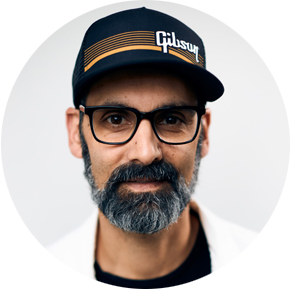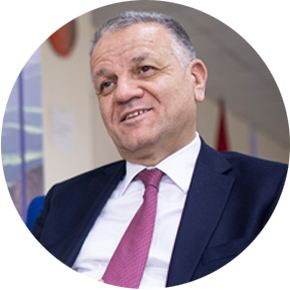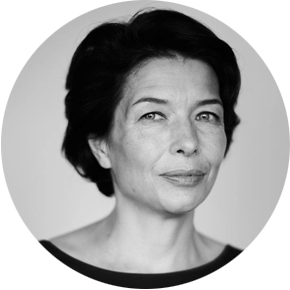Studying the materials in the German Foreign Ministry archive, fellow associate and historian at the University of Potsdam Christin Pschichholz asserts that the secular and religious authorities of the German Empire were well aware of the Armenian Genocide committed in the Ottoman Empire.
Mediamax had an exclusive interview with Christin Pschichholz.
- How did you decide to dedicate your research to the Armenian Genocide and Germany's role in it?
- My doctoral thesis is about German protestant communities in the Ottoman Empire. In the research stage, former religious primate of the German-speaking community of Istanbul called my attention to the archive materials of the church. They were particularly materials of the World War I - the reports of the religious leaders to the German churches.
The documents clearly showed that their religious leader, who was also a preacher at the German Embassy in Turkey, was aware of the 1915 events. After finding this out, I started focusing a chapter of my work on the study of German protestant churchmen during the Armenian Genocide. However, the most ruthless demonstrations of violence and deportation of people makes the core of this chapter of my work. It also touched upon Germany's response to the Armenian Genocide.
- Studying the documents on the Armenian Genocide kept in the German Foreign Ministry archive, you said that German diplomats thoroughly depicted everything they evidenced at that time. What details did you reveal?
- The archive documents of the German Foreign Ministry are one of the most important sources on the Armenian Genocide and they underlie comprehensive studies. German consuls in the Eastern Anatolia regions were well aware of the social and political situation of the area. They could oppose to the propaganda of the Young Turks according to which the deportations were a military necessity. The German consuls were reporting on the death processions and massacres in detail.
- Once you said that German Ambassador to Turkey wrote in his telegram to the Kaiser on July 7, 1915: ''The Turkish government stated its intention to exterminate the Armenian ethnos in the Empire''. Do you think Germany could prevent the Armenian Genocide?
- That's a difficult question. According to the archive materials which are historical sources, one can't answer the question of ''What would happen if?..'' One thing is for sure: German Empire should have foreboded that Armenians as well as other Christian and ethnic minorities in the Ottoman Empire were threatened by the war. But it wasn't the ground for the ban of not becoming allies with the Ottoman Empire in late 19th century. Besides, the German Empire knew about systematic demonstration of violence in 1915. However, not to threaten the military alliance they accepted the cases of violence. Only a few Germans were against them. A number of German diplomats and first of all, military servicemen, joined the Young Turk propaganda and actively propagated the idea that Armenians allegedly initiated large-scale rebellions on the front. 5 cases of high-ranking military servicemen are thoroughly depicted in the archives.
However, not all the German servicemen behaved the same way. Generalleutnant Liman von Sanders, Head of German military mission in the Ottoman Empire, hindered Armenians' deportation from Izmir. To have a weighty ground for hindering the process, the German Empire should have embarked on large-scale reforms earlier, which, however, was not at all in line with Germany's policy in the East. Investigating the situation in 1915-1916, it becomes clear that in their political games, both the German army and government didn't leave any ground for defending Armenians. Could they prevent the Genocide? It's hard to say but the large-scale intervention could have perhaps saved many lives.
The German Empire showed how cruel it can be to innocent people while pursuing its own military goals.
- Turkey continues its policy of denial 100 years after the Genocide as well. In your opinion, will this country have the courage to face its past and bear responsibility for what it committed?
- It seems that the Turkish government is now stuck in a dead-end regarding this issue. Anyways, there are processes in the civil society which are taking another direction. In many fields in Turkey, this subject is studied under ''Genocide'' term. There are many leading Turkish scientists who contributed to revealing more about the Armenian Genocide. However, I can't say that there will be a significant change in the foreseeable future.
- What policy will the international organizations and powers of the world pursue to acknowledge and condemn the Armenian Genocide given the Pope's recent statement on the Mets Yeghern?
- Every such statement is significant as it raises awareness about it. However, particular statements can make part of the overall dynamics. I think it is only social and political processes and cooperation that will lead to the full recognition of the Armenian Genocide.
Anush Petrosyan talked to Christin Pschichholz


























Comments
Dear visitors, You can place your opinion on the material using your Facebook account. Please, be polite and follow our simple rules: you are not allowed to make off - topic comments, place advertisements, use abusive and filthy language. The editorial staff reserves the right to moderate and delete comments in case of breach of the rules.